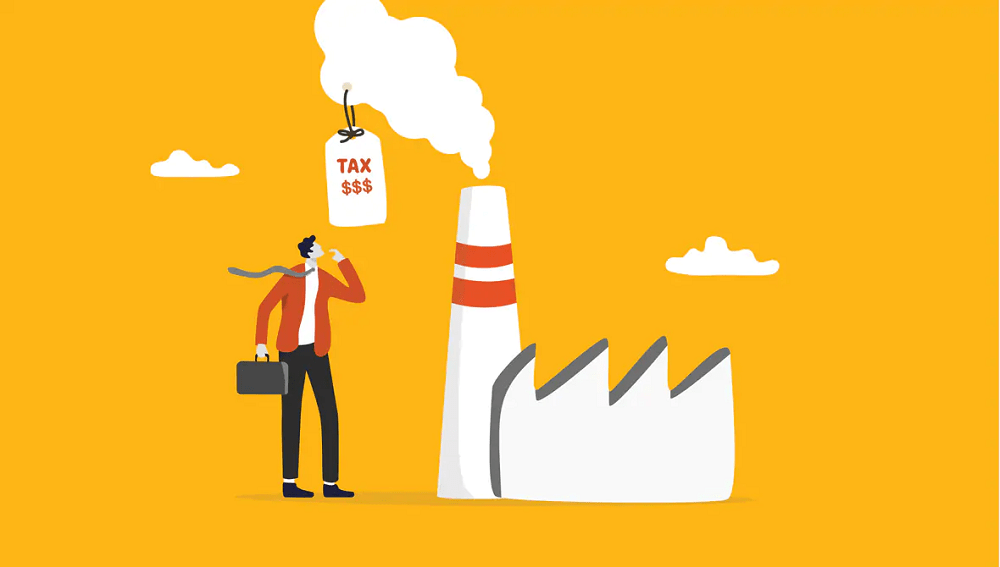In Short : Piyush Goyal, the Commerce and Industry Minister of India, has stated that the country will raise the issue of the carbon tax with the European Union (EU) “very strongly.” This indicates India’s assertive stance on addressing concerns related to the EU’s proposed carbon border tax, emphasizing the importance of fair and equitable trade policies.
In Detail : New Delhi : India has decided to take up the Carbon Border Adjustment Mechanism (CBAM) issue ‘very strongly’ during bilateral dialogue with the European Union, commerce minister Piyush Goyal said on Friday. The minister also said New Delhi would not rush into signing free trade agreements (FTA) unless they were fair and equitable.
CBAM is a tariff on carbon-intensive products such as steel, cement and some electricity imported by the European Union, and is meant to encourage cleaner industrial production in non-EU countries. A part of the European Green Deal, it takes effect in 2026, with reporting having started in 2023.
“Where we have to retaliate, we will retaliate. Where we have to take countermeasures, we will take countermeasures. Where we have to have conversations and discussions and solve issues bilaterally, we will discuss and solve them, and where we have to take it up legally, we will do that,” Goyal said at the Raisina Dialogue 2024.
He said CBAM has been a matter of concern for various businesses. “CBAM is something we will take up very strongly within the rules of the WTO (World Trade Organisation). We will be addressing that issue bilaterally also with the EU,” Goyal said.
According to a report by Global Trade Research Initiative, a think tank, CBAM will translate to a 20-35% tax on certain imports into the EU from 1 January 2026. Companies in seven carbon-intensive sectors, including steel, cement, fertiliser, aluminium and hydrocarbon products, are likely to be affected by this tax.
About 27% of India’s exports of iron ore pellets, iron, steel and aluminium products go to the EU. The country exported $7.4 billion worth of these goods to the EU in 2023. These products are likely to attract the carbon tax.
The minister said India would turn this into “our advantage”. He said, “We have plans, [but] I cannot disclose [what they are]. However, I can assure each and every person in India that the prime minister and his team will ensure that Indian business does not suffer, and that we are right on top of issues such as this.”
The seventh round of negotiations for an India-EU free-trade agreement is underway. The talks were revived in 2022 to forge an agreement that could counterbalance China’s growing influence in the Indo-Pacific region.

